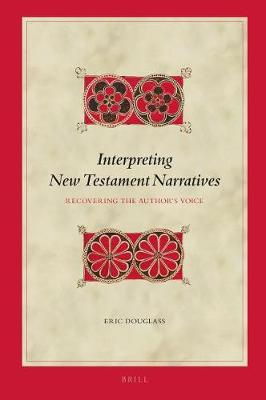Biblical Interpretation
2 primary works
Book 133
All interpretive systems deal with the author. Modern systems consider the text to be autonomous, so that it is disconnected from the author's interests. In Reading the Bible Ethically, Eric Douglass reconsiders this connection. His central argument is that the author is a subject who reproduces her culture and her subjectivity in the text. As the author reproduces her subjectivity, the text functions as the author's voice. This allows Douglass to apply ethical principles to interpretation, where that voice is treated as a subject for conversation, and not an object for manipulation. He uses this to texture the reading process, so that an initial reading takes account of the author's communication, while a second reading critiques that communication.
Book 169
Narratives are the concrete manifestation of an author's subjectivity. They function as that person's voice, and should be treated with the same respect that is granted to all voices. In Interpreting New Testament Narratives, Eric Douglass develops this ethical perspective, so that narratives are treated as communication, and the author's voice is regarded as a valued perspective. Employing a cross-disciplinary approach, Douglass shows how readers engage narratives as mental simulations, creating a temporary possible world that readers enter and experience. To recover communication, readers locate the events of this world in the culture of the intended audience, and translate this meaning into the modern reader's worldview. Using a staged reading design, this initial reading is followed by readings of critique.

